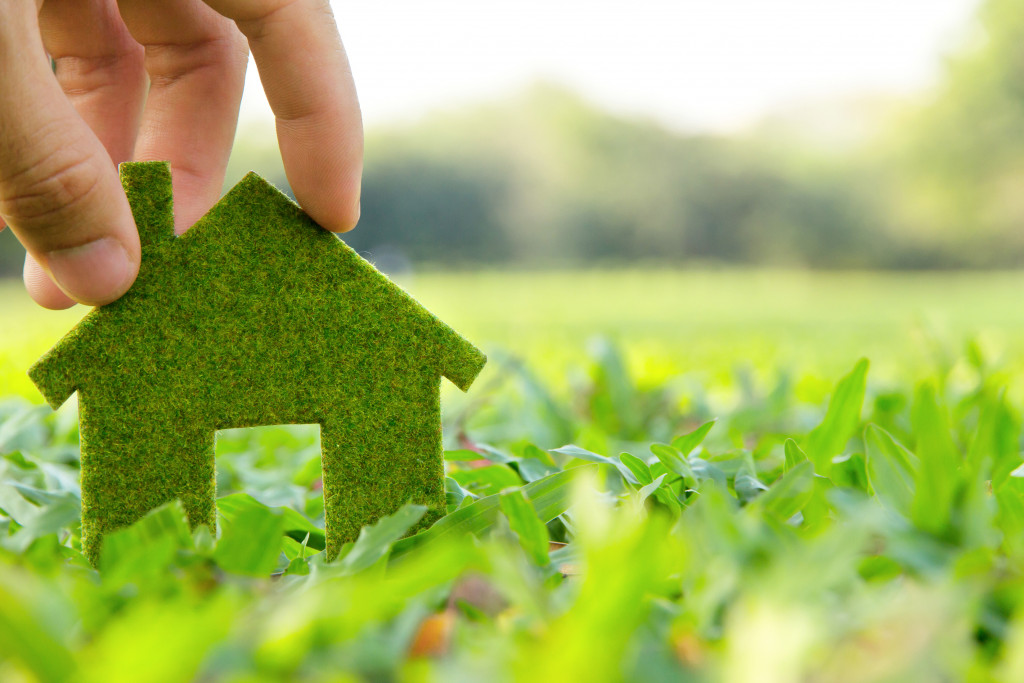- Reduce energy consumption by unplugging unused devices and setting your thermostat accordingly.
- Install solar panels to generate electricity from the sun and save money on utility bills.
- Make home renovations such as replacing old windows and doors, adding insulation, and upgrading water heater and lighting fixtures.
- Use natural and renewable materials such as bamboo, cork and insulation materials like sheep’s wool or straw bales.
- Reduce consumption by investing in reusable items, recycling, and properly insulating your home.
Sustainability has become increasingly important in recent years, and the need to protect Earth has never been more necessary. Making your home eco-friendly is one key way to help reduce your carbon footprint and contribute positively while saving money on bills and enjoying cleaner air. Here are five tips that you can do to make your home more eco-friendly.
1. Reduce Energy Consumption
One of the easiest things you can do to make your home more eco-friendly is to reduce energy consumption. Investing in energy-efficient appliances can help save money on your electricity bill and reduce emissions. You can look for ways to reduce your energy usage by unplugging unused devices, using power strips and setting your thermostat at lower temperatures in the winter and higher temperatures in the summer.
2. Install Solar Panels
Installing solar panels is one of the most effective ways to make your home eco-friendly. Solar panels capture energy from the sun and use it to generate electricity for your home. This will reduce your reliance on traditional sources of energy, such as coal and natural gas, which both damage the environment. Not only that, but installing solar panels can also help you save money on your energy bills. Solar panels can pay for themselves in a few years, depending on the size of your home and the amount of electricity you use. Once installed, they require little maintenance and can last for many years
3. Utilize Home Renovations

Renovating your home can make it more energy efficient. Start with replacing old windows and doors, which can help keep the heat in during winter and cool air in during summer.
Here are some renovations you can make to create an eco-friendly home:
Garage Door Replacement
Garage door replacement can be a great way to make your home more eco-friendly. Professional garage door repairs can ensure you that the insulation used is up to standard and can help reduce energy loss in your home. A professional will also be able to make sure your door is properly installed and functioning correctly. Properly sealing the edges of the garage door will also help keep out draughts, making it easier to maintain a comfortable temperature inside your home. Also, modern garage doors have various energy-saving features, such as insulated glass, that can reduce heat loss and noise pollution.
Water Heater Upgrade
Upgrading your water heater to a tankless model can help you save energy, as it only heats the water when used, eliminating standby heat loss. Consider replacing your existing unit with a solar-powered one to reduce your carbon footprint further.
Lighting Upgrades
Replacing old lighting fixtures with LED bulbs will significantly reduce your monthly electricity bill and decrease your carbon footprint. LED bulbs are more energy efficient and last longer than traditional bulbs, making them an excellent choice for eco-friendly homes.
Roofing Installation
Installing a green roof is one of the most effective ways to reduce heat loss from your home and improve air quality in the area. Look for products certified by the Environmental Protection Agency (EPA) or an equivalent organization. This will ensure that your new roof is as eco-friendly as possible while providing excellent protection from the elements.
4. Use Natural Materials

Using natural materials in your home can also help make it more eco-friendly. Natural, renewable materials such as bamboo, cork, and linoleum are all great options for flooring, countertops and more. Not only do these materials last longer than artificial alternatives, but they also add a unique touch of character to any room.
Natural insulation materials like sheep’s wool or straw bales can provide energy efficiency and keep your home warm in the winter and cool in the summer. And, of course, natural materials are much more environmentally friendly than synthetic materials, so they can help you reduce your carbon footprint while saving money on utility bills. Natural materials often require less maintenance than artificial materials and may even increase the value of your home.
5. Recycle and Reuse
Reducing, reusing, and recycling are all important aspects of a more eco-friendly lifestyle. Investing in reusable items such as cloth bags, glass jars and refillable water bottles can help reduce waste and save the environment. Ensuring that your home is properly insulated can help keep energy bills low.
In Closing
Making your home eco-friendly doesn’t have to be a difficult or expensive process. By following these five tips, you can make small changes that will help reduce energy consumption, save money and ultimately benefit the planet. So what are you waiting for? Start making your home more eco-friendly today!
